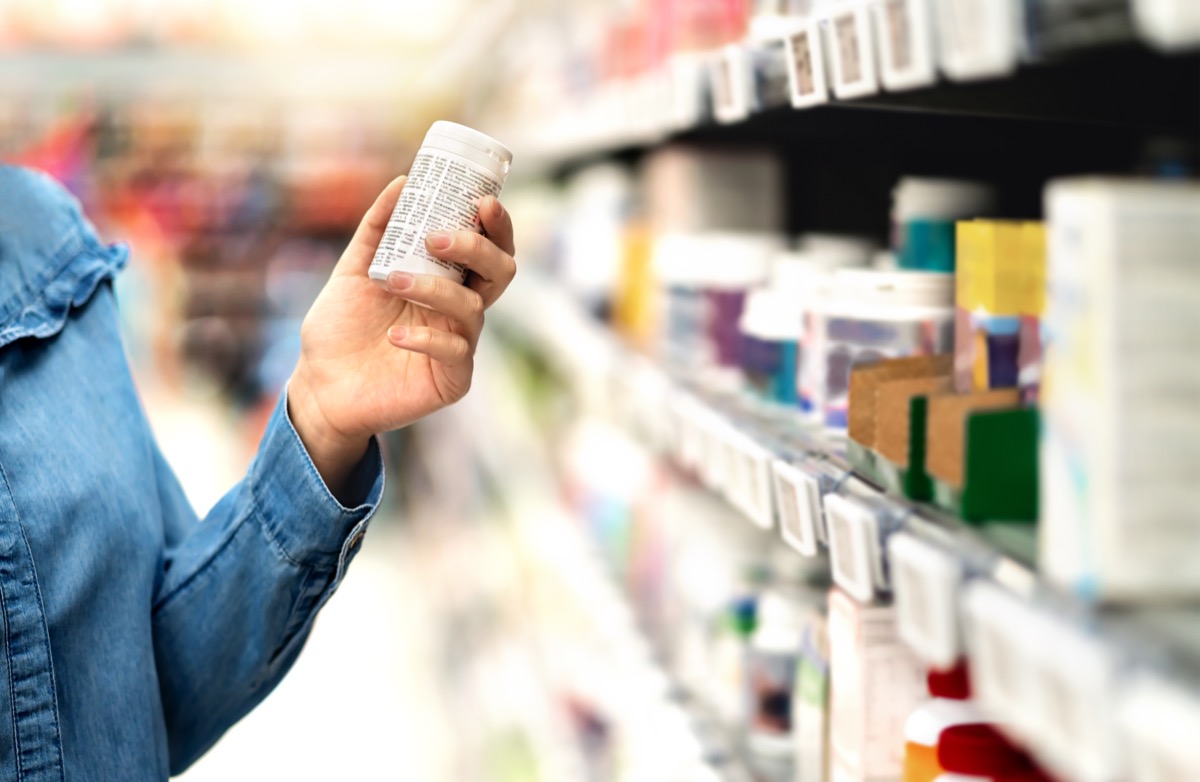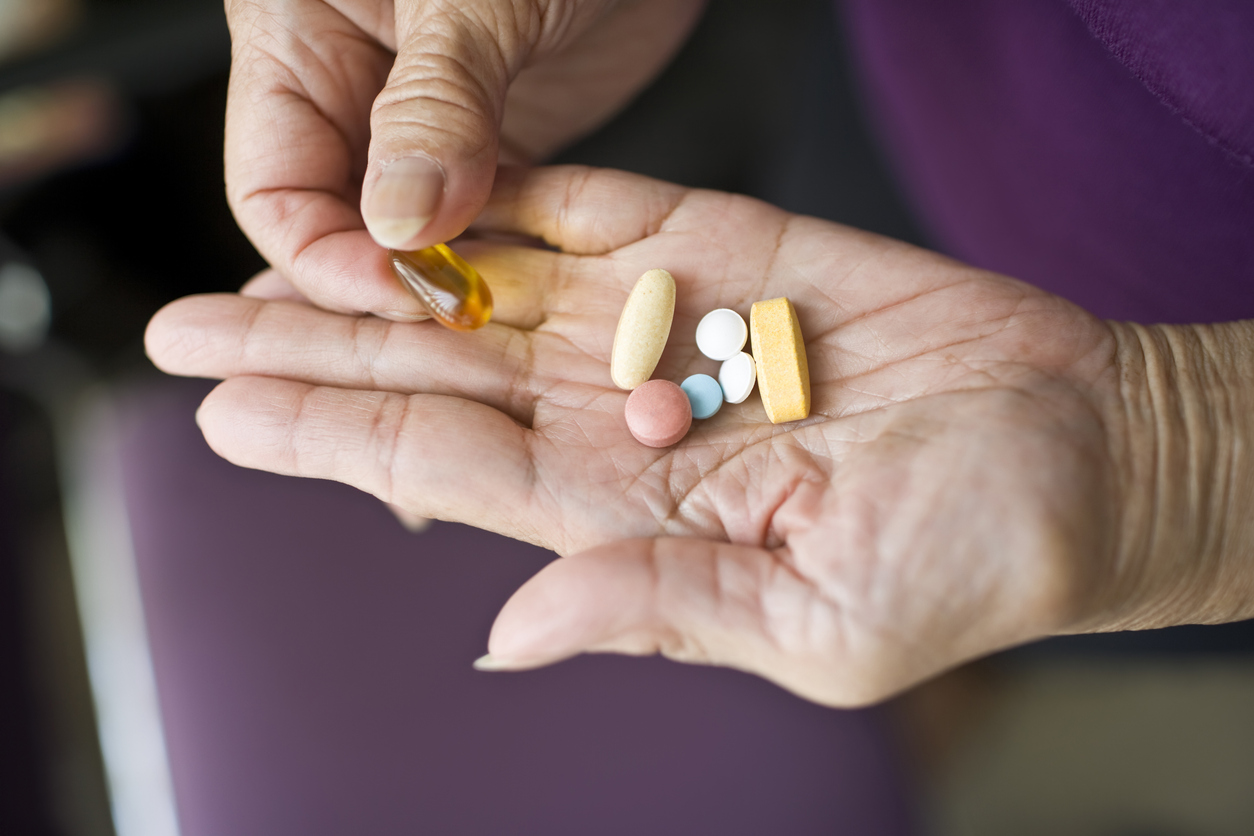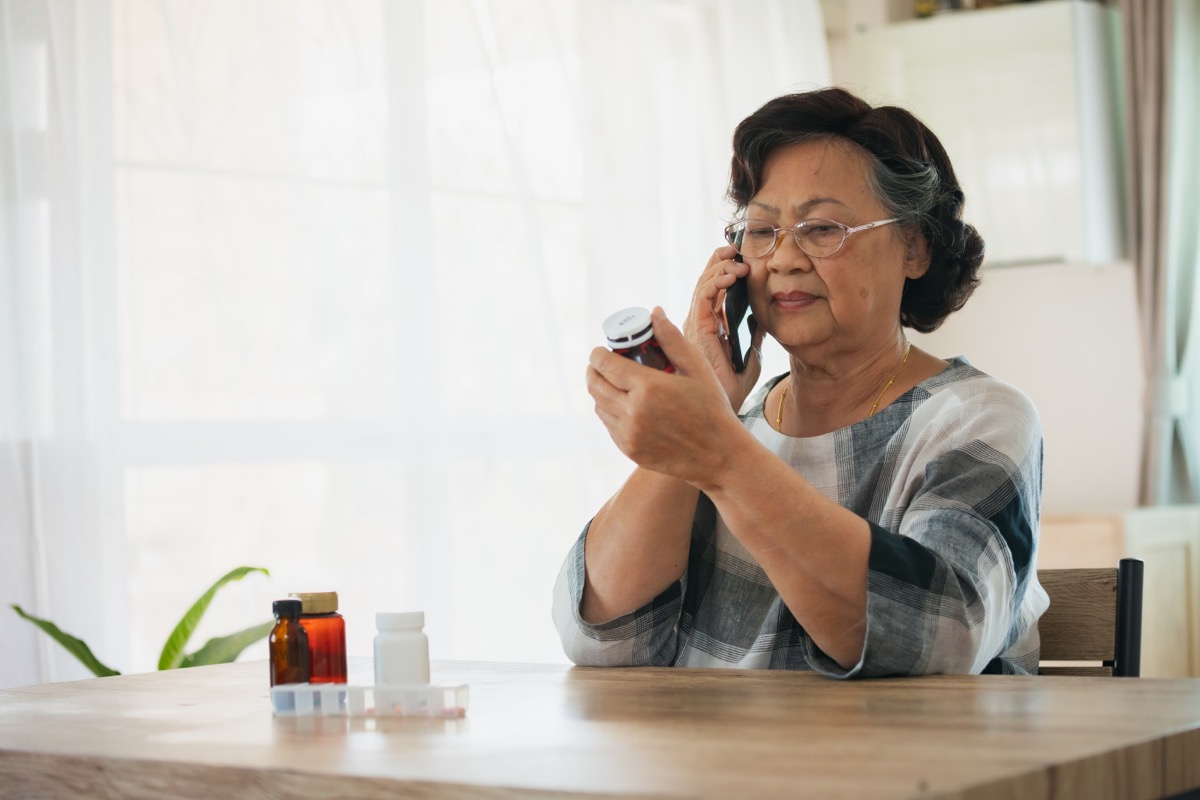RELATED: If You Take These 2 Supplements, Your Stroke Risk May Be High, Study Says. While there is still no way to know if the supplement you’re purchasing will provide the results they promise, looking for a seal of approval from the United States Pharmacopeial Convention on the bottle will guarantee that the product in question contains the ingredients listed on the label in the quantities advertised. Besides checking for purity and potency, the small green and yellow “USP Verified” seal signifies that the product has been vetted by the independent group to be free of harmful levels of contaminants or ingredients and “has been made according to [Food and Drug Administration] FDA current Good Manufacturing Practices using sanitary and well-controlled procedures.” But beware of products that use “USP” lettering without the accompanying seal, as it means the group hasn’t independently verified the products. According to the USP website, only a small number of vitamin, multivitamin, mineral, and other supplement brands carry the seal, including NatureMade, Kirkland, and TruNature. Besides the “USP Verified” seal, there’s another way to check whether or not a product has been vetted. Another nonprofit group, NSF International, is also contracted by manufacturers to vet their products, awarding a blue and white seal to products that contain the ingredients advertised on the label. According to The New York Times, the group also specifically uses its “NSF Certified for Sport” program to check dietary supplements such as creatine protein powders for additives such as steroids or prescription drugs. If you find yourself shopping online or with a smartphone in hand, you can check in with other independent agencies that routinely vet and report on supplements, such as ConsumerLab.com and LabDoor. Both sites make information on a wide variety of popular products available for a small fee. RELATED: This Supplement Can Cause Cardiac Arrest If You Take Too Much, Doctors Say. It’s no secret that the dietary supplement world is full of products with hollow promises at best and dangerous hidden ingredients at worst. In fact, the FDA is “not authorized to review dietary supplement products for safety and effectiveness before they are marketed,” instead only testing products with new ingredients for safety, not effectiveness. And research has shown that some supplements are inaccurate in providing what they promise on their label. One study published in the Journal of Clinical Sleep Medicine in 2017 found that out of 31 melatonin supplements tested, 71 percent of them differed from their advertised amounts, ranging from 478 percent more to 83 percent less than their label claims. Even though the convenience of a one-a-day pill can be tempting, the bigger picture can still be important when it comes to taking them safely. According to the Mayo Clinic, this includes being aware of how a supplement can react with any medications you may be taking or how two supplements can react when taken together. Besides doing your research on individual products, they suggest speaking with your doctor about any daily regimens you’re considering taking up and contacting the manufacturer or FDA if you’re left with any other unanswered questions.ae0fcc31ae342fd3a1346ebb1f342fcb RELATED: These Are the Only 2 Supplements That Help You Live Longer, Study Finds.



